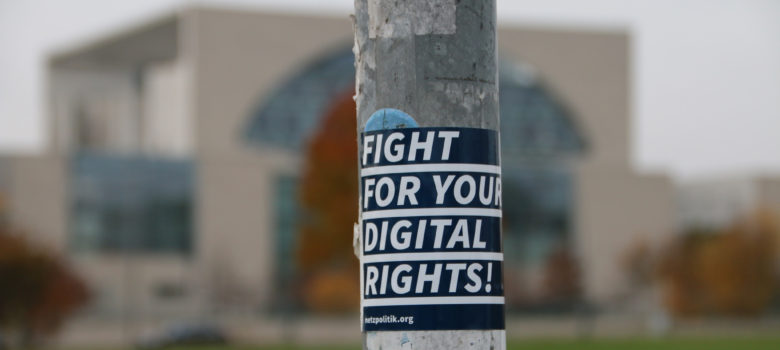With just over a year to go before the 2019 Canadian national election, the upcoming fall Parliamentary session will undoubtedly feature a renewed urgency to pass legislative proposals and craft new policies that will form the basis for future election platforms. Digital issues will surely feature prominently including the copyright review and Copyright Board reform, website blocking proposals, privacy safeguards, the broadcast and telecom review, a national data policy, and the implementation of the IP strategy. The same is true elsewhere with Europe to again consider copyright reform, the U.S. assessing privacy rules, and many other countries engaged in digital policy initiatives. However, just as the broader public is finding its voices on these issues with policy submissions, petitions, and efforts to ensure that a public interest perspective is a core part of the process, the traditional lobby groups that have long dominated the policy discourse are steadily working to undermine those efforts with cries of user voices being “mob-driven“, “hacking“, or “disinformation.”
In recent months there has been a disturbing campaign to marginalize civil society by questioning their tactics, supporters, and expertise. The reality is that these groups represent a growing segment of society concerned with digital policies. One need not be a privacy expert to recognize there are problems with the state of privacy law, a telecom expert to know that Canadians pay high prices for wireless services amidst limited competition, or an Internet expert to realize that website blocking raises legitimate concerns for freedom of expression and net neutrality. Yet lobby groups accustomed to getting their way now throw as much mud as possible at opponents – questioning everything from their expertise to their gender – in the hope that some of it sticks.
The mudslinging often focuses on the use of social media or other online tools to galvanize public support on a particular issue. For example, tens of thousands of Canadians spoke out through petitions and online sites against the Bell coalition’s website blocking proposal. The reality is that groups on all sides actively used social media to encourage their supporters to speak out and participate in some manner in the regulatory process. The fact that far more Canadians spoke out against the proposal than for it does not diminish the relevance of those voices. Nor does it suggest shadowy interference from foreign operatives. Rather, it points to the passion of many Canadians who may not follow policy issues day-to-day, but will speak out when a proposal is simply offside their core views (the same response arose earlier this year in Europe with opposition to upload filtering).
While these battles play out in public, it is the behind-the-scenes efforts that are frequently the most instructive with regard to the imbalance that exists on the digital policy front. As I blogged last week, Canadian copyright lobbying is incredibly one-sided with 80 per cent of registered meetings since the 2015 election representing rights holder perspectives. That one-sided approach helps explain why education groups, libraries, innovative companies, and the general public often feel that the process is stacked against them. In fact, the 80 per cent figure is still lower than the Canadian Heritage committee’s contribution to the copyright review, which thus far has not heard any user voices.
Moreover, the cries of hacking the system ring hollow on issues such as website blocking when access-to-information requests and leaks reveal that Bell was granted an advance meeting with the CRTC on the proposal, engaged in astroturfing among its employees, pressured post-secondary institutions such as Brock, Ryerson, and George Brown to offer support, and even coalition partners such as the CBC had internal doubts about the plan.
Many of Canada’s most important digital policy initiatives are still at an early stage: many months remain in the copyright review, the broadcast and telecom review panel is just getting going, the national data strategy consultation is still open, and the CRTC has yet to announce its next steps on website blocking. Canadians therefore need to wash off the mud and continue to speak out as politicians and regulators remain mindful that these voices are not a mob, but rather the public in the public interest that they have the responsibility to serve.








“In recent months there has been a disturbing campaign to marginalize civil society by questioning their tactics, supporters, and expertise.”
There’s an industry out there for those willing to serve power by arguing that people should just stop thinking, questioning authority and just start accepting all that authorities – especially those that the State approves of – say. I was given some links by someone I met in a coffee shop that included a link to one gentleman who has written about that ‘problem’. A quick look at his background was revealing. Ex military etc.. The global pacification program, including censorship, continues apace.
“the cries of hacking the system ring hollow on issues” This is true, secure system is much more important to for every one.
Hi Michael.
The traditional lobby groups that have long dominated the policy discourse are steadily working to undermine those efforts with cries of user voices being “mob-driven“, “hacking“, or “disinformation.”
Since you link to me twice on hacking and disinformation. Can you demonstrate how I as an independent indie artist I am a “Traditional Lobbying Group”. You have no factual basis for this claim and I ask you to correct this highly misleading statement.
Well, I just read the article and got some helpful tips. Thank you very much for your information. I’d like to visit again.